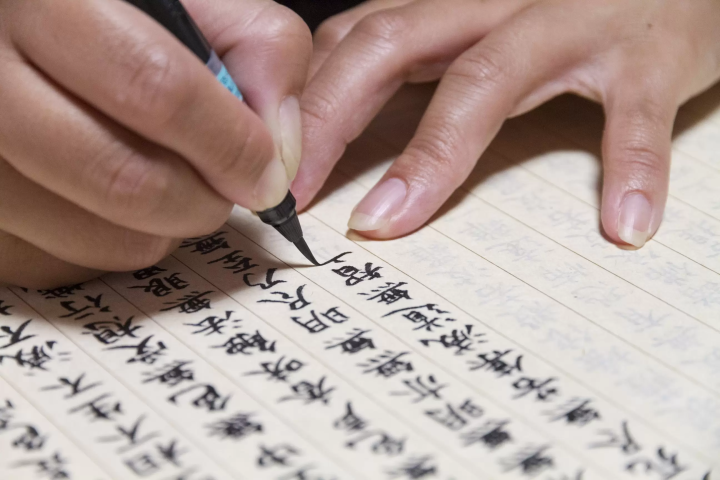The Ryokan by the Gate: Kaminarimon Ryokan in Asakusa

Kaminarimon Ryokan is a stylish Japanese inn located right near the famous Kaminarimon Gate of Sensoji Temple. Every room and every corner of this ryokan is a work of art!
Welcome back to Tokyo Ryokan Stories! I’m Roza Akino, and I live and work in Japan. Thanks for joining me on my journey to explore the lesser-known lodgings in Tokyo!
Today’s trip takes me to a ryokan located in the heart of Asakusa. On my way to the ryokan, I stop in front of the world-famous Kaminarimon, the gate to Asakusa’s famous Sensoji temple, to check my map. I do a double-take because according to the map, I’m standing in front of the ryokan.
Kaminarimon Ryokan is aptly named because it is located literally right next to the Kaminarimon.
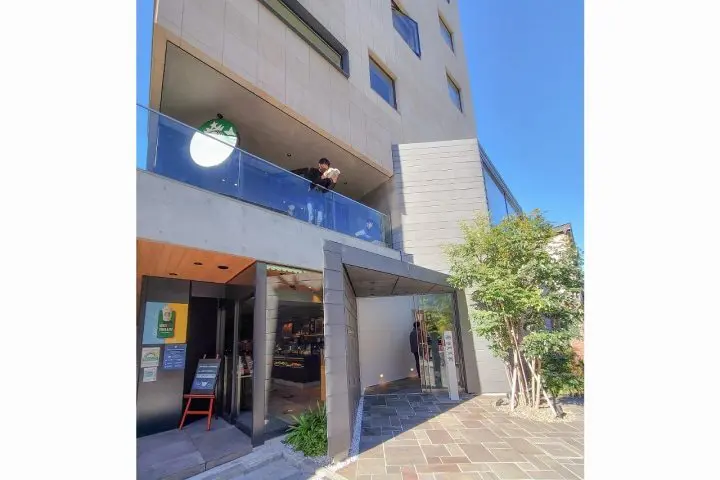
I walk past the Starbucks that is adjacent to ryokan’s entrance, into the modern and chic-looking building.
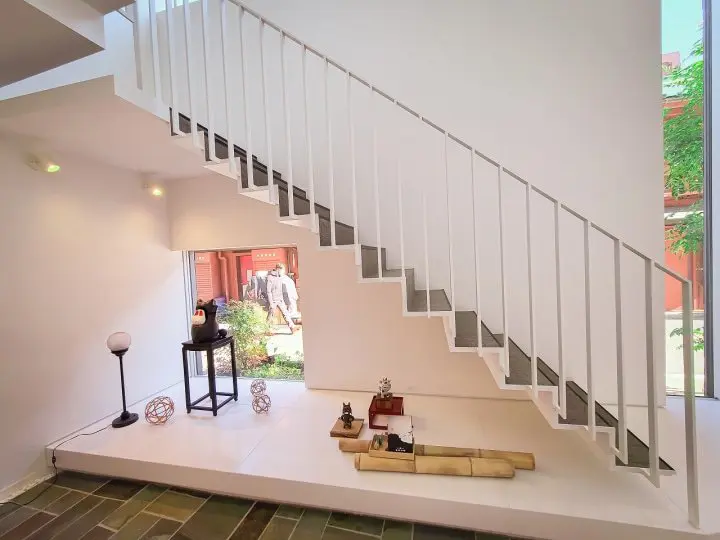
The first-floor entrance
The entranceway is crisp and clean, not a single speck of dirt or dust to be seen on the white display area under the stairs. The lobby is up the stairs (or elevator, if you prefer).
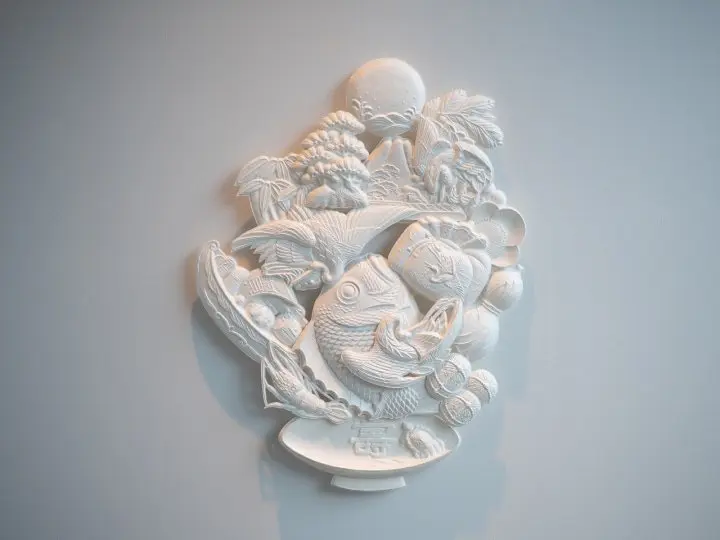
The stairway displays a piece of papier-mâché art made from a combination of several molds used for traditional sweets.
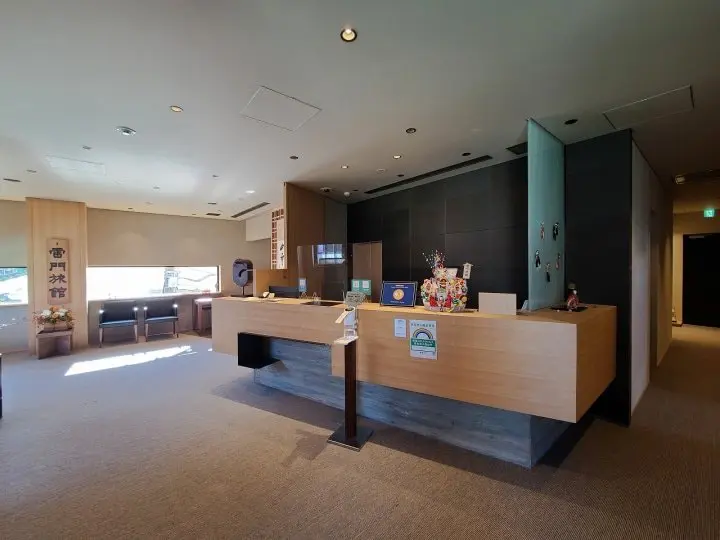
When I step into the lobby I am entranced by the décor, which includes many antique pieces form the Edo and Meiji periods as well as sho calligraphy pieces done by famous artists.
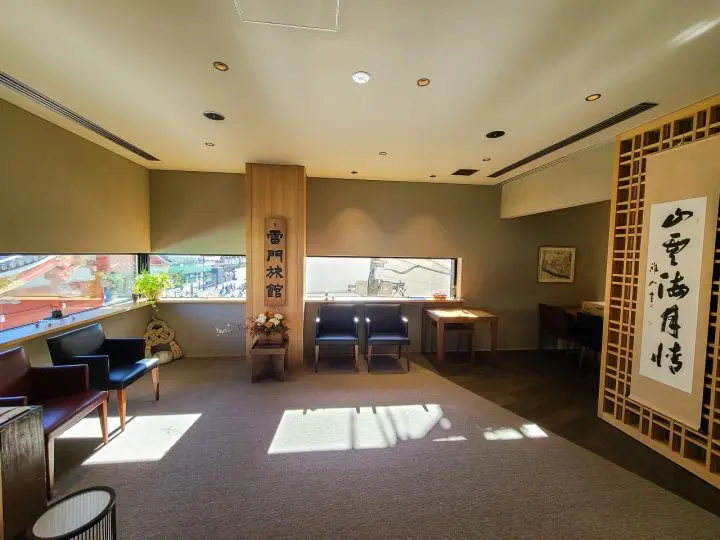
Extreme thought has been put into the design of every corner of this ryokan, with abundant use of wood and traditional crafts.
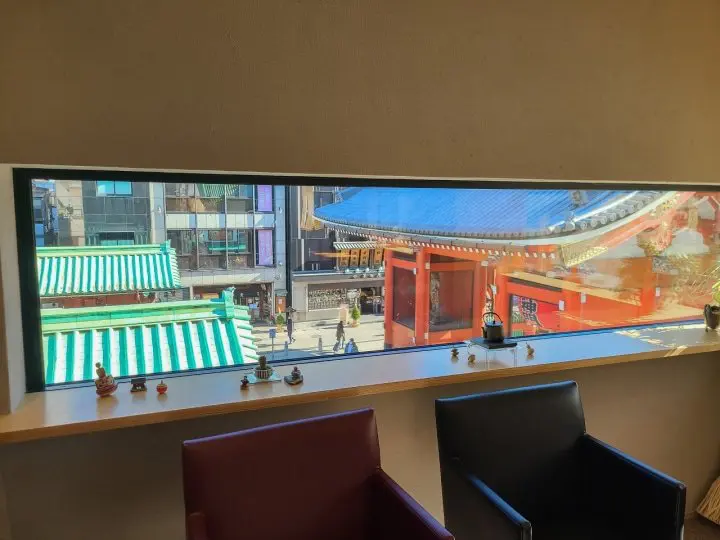
You can’t get this view anywhere else—Kaminarimon from above
Even the scenery that is visible out of each window looks as if it is a frame for a piece of art, a snippet of the outside world that has been carefully placed here just for me to look at. I am in awe.
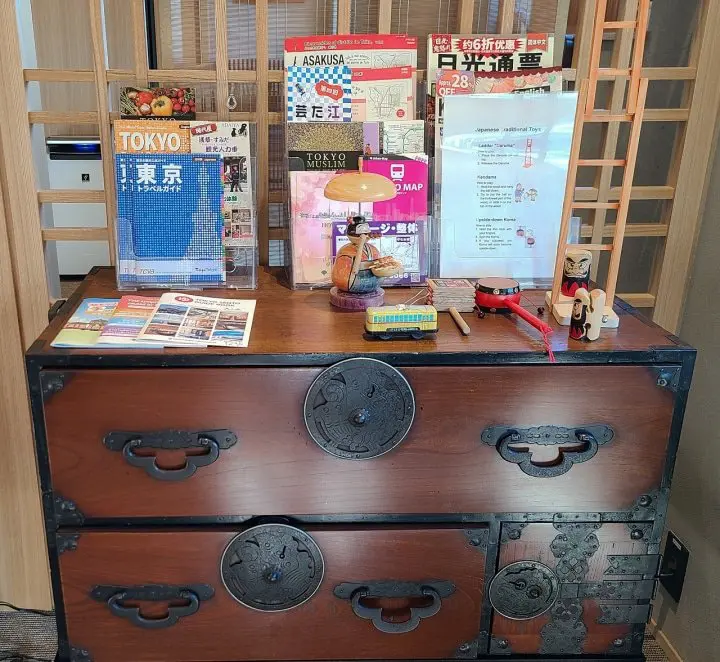
A traditional Japanese antique chest
This ryokan is the definition of beauty, tradition, and art combined.
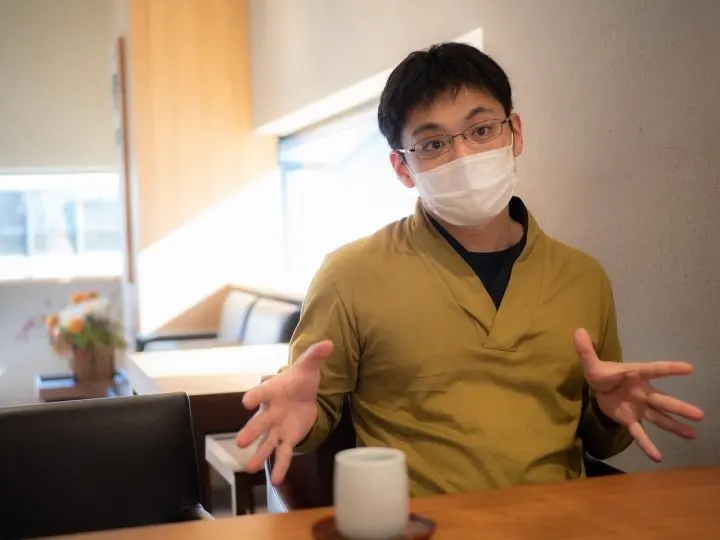
Tobe-san
I sit down to meet 31-year-old Masatoshi Tobe-san, the 4th generation head and Senior Managing Director of the ryokan.
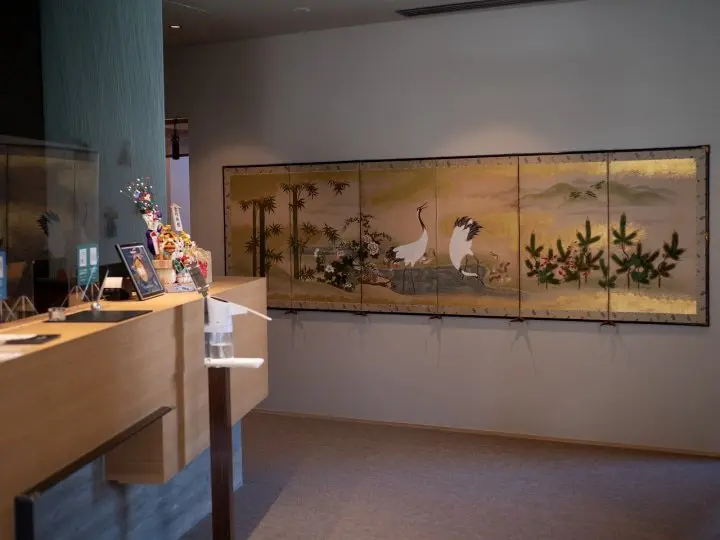
An antique folding screen framed on the wall
Kaminarimon Ryokan is family-run, and the interior decorating has been highly influenced by Tobe-san’s mother and current proprietress of the ryokan, Yoshiko-san who has an affinity for antiques.
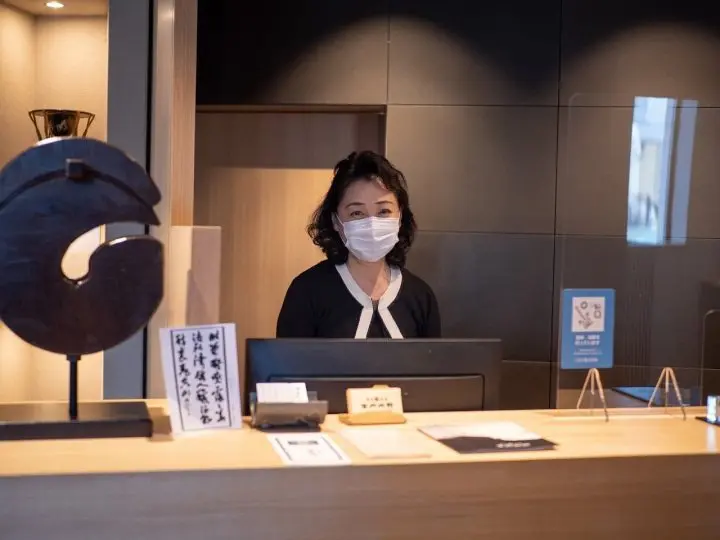
Yoshiko-san
Yoshiko-san, with her soothing voice and calm demeanor, is a pleasure to be around. After she explains the significance of a few of the items on display in the lobby, I sit down with both of them to listen to their story.
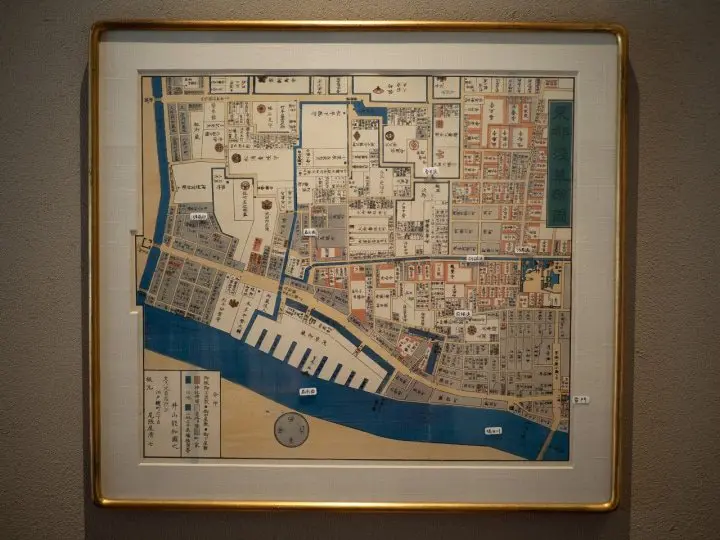
An antique map of the Kaminarimon area during the Edo period
Tobe-san’s great-grandfather came to the Asakusa area after the war and decided to do business there. He started this ryokan in 1947. It’s hard to imagine looking at the bustling tourist area that it is now, but at the time, Asakusa was a barren land that was burnt to the ground during the war.
The ryokan even predates the current Kaminarimon next to which it stands.
“So, the mon (gate) was in a different location during the Edo period, then it burned down and wasn’t rebuilt for a while. How did your great-grandfather choose such a prime location that ended up being right next to the new location of the Kaminarimon?” I inquire.
To which Tobe-san responds, “He chose this place because it was close to the nakamisedōri so there was a lot of foot-traffic, and it was one of two spots that had a well.” At a time when Asakusa had been burnt to ashes, perhaps Tobe-san’s great-grandfather saw the natural water-supply as a good omen.
As Tobe-san’s grandfather hoped, after the war the area prospered and the ryokan became a place for business people to stay. The building was traditionally built, two-storied with a courtyard, chimney, and even chickens! Yoshiko-san recounts hearing how at the time, children in the area would use the tall chimney as a navigation tool since there were no other tall buildings in the area.
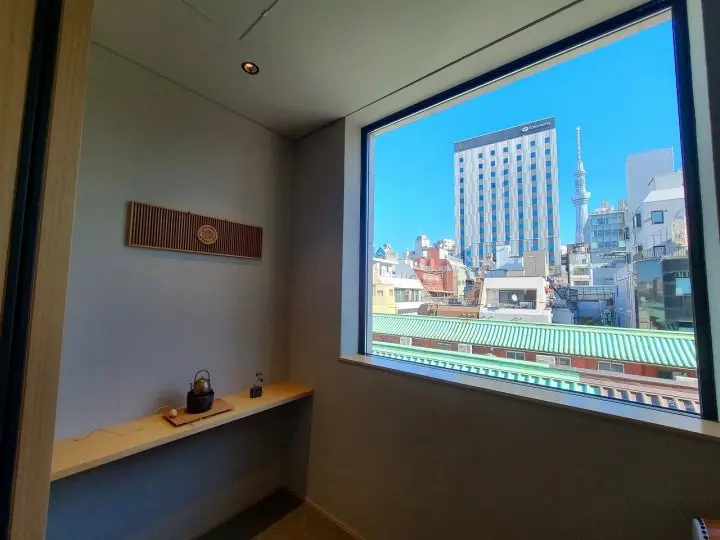
Every window has an incredible view
With the changing times it was rebuilt as a hotel, as many ryokan were during the 70’s and 80’s, transforming into a brick structure. The ryokan’s current state, however, is completely different from both of its previous transformations. The hotel was once again rebuilt in 2019 as a ryokan for travelers, and with a clear concept in mind: the Olympics. To prepare for the expected great influx of foreign travelers, this new ryokan incorporated the best of traditional Japanese wa aesthetic, with the full comfort of modern technology for a luxurious and unforgettable experience for its guests.
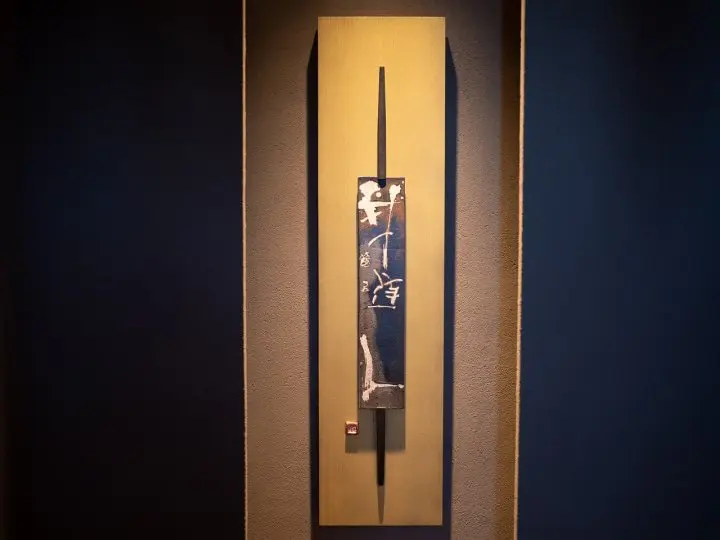
You can see the texture of the tsuchikabe wall behind the art piece
One aspect that is prevalent throughout the ryokan is the use of tsuchikabe, traditional Japanese clay walls. These tsuchikabe are easily damaged and very expensive to repair, which is why they are usually only found in high-class Japanese ryotei restaurants and traditional tea rooms. Although they add to the cost of upkeep, they also have the benefit of absorbing humidity and adding a sense of warmth to the room. All 13 rooms of the ryokan, as well as the lobby, have tsuchikabe walls.
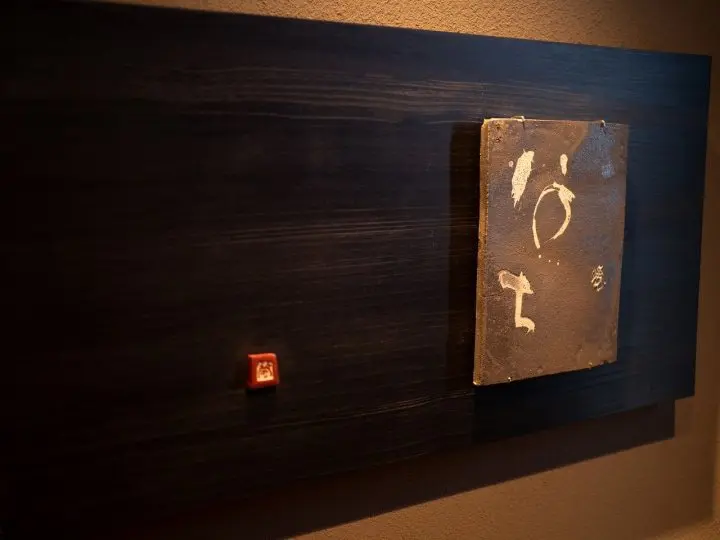
The traditional tsuchikabe walls harmonize well with the various antiques, rearranged according to the season, that are displayed throughout the building.
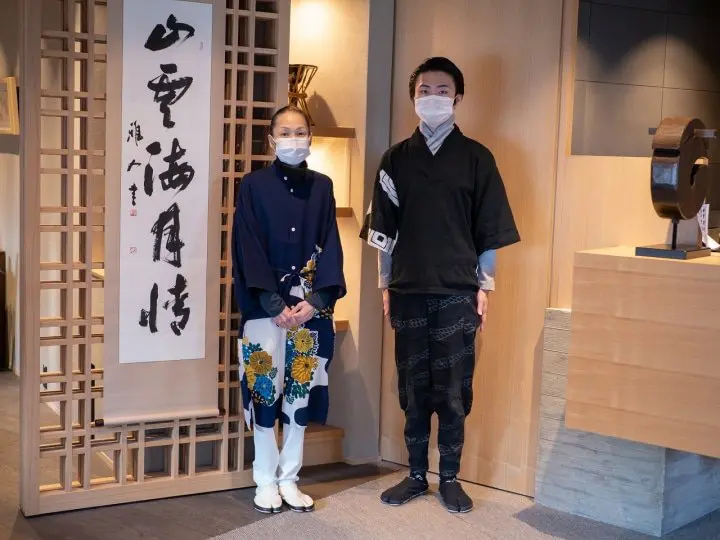
As Tobe-san is about to show me around the various rooms or the ryokan, we run into a couple of members of the staff.
In line with the overall concept, the staff here wear clothes made by a popular wa-modern clothing brand that creates pieces inspired by traditional Japanese attire, but with a modern twist.
There are several types of rooms, all of which have their own bath and toilet.
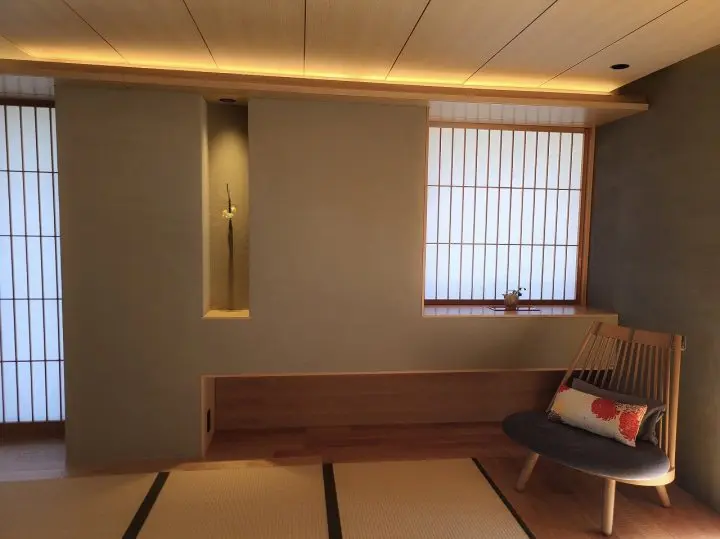
Sakura, the suite on the 7th floor, measures 72m2 and is the biggest room of all. Its design is breathtaking—everything from the clay alcove in the wall displaying a single flower, to the multiple shōji windows that fill the room with light.
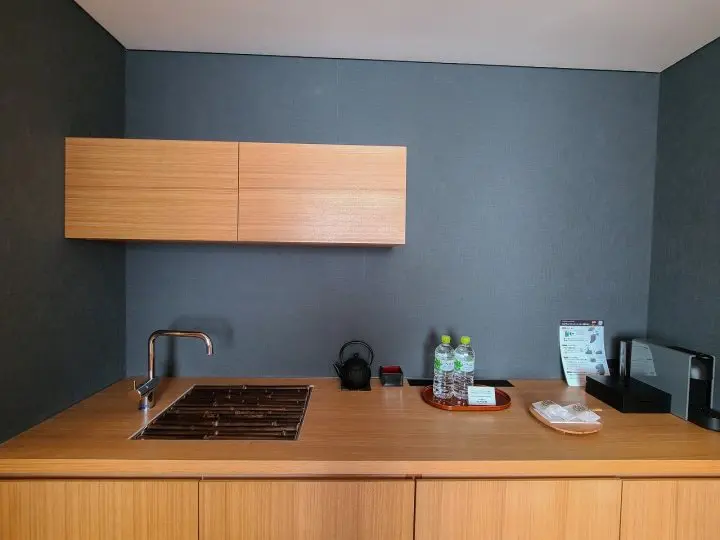
The refreshments area in Sakura
While the bedroom is western-style with hardwood floors and beds, the main room is done in a modern Japanese style.
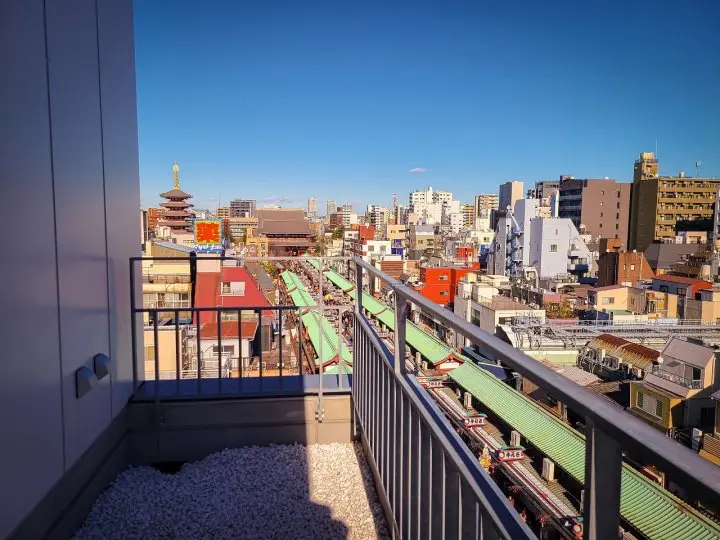
The terrace view from room Sakura
It also has its own terrace that overlooks Nakamisedori and Sensoji Temple. This terrace is perfect for watching the fireworks display in May as well as Sanja Matsuri, one of the three largest festivals in Tokyo, from the comfort of your room without getting caught in the crowds.
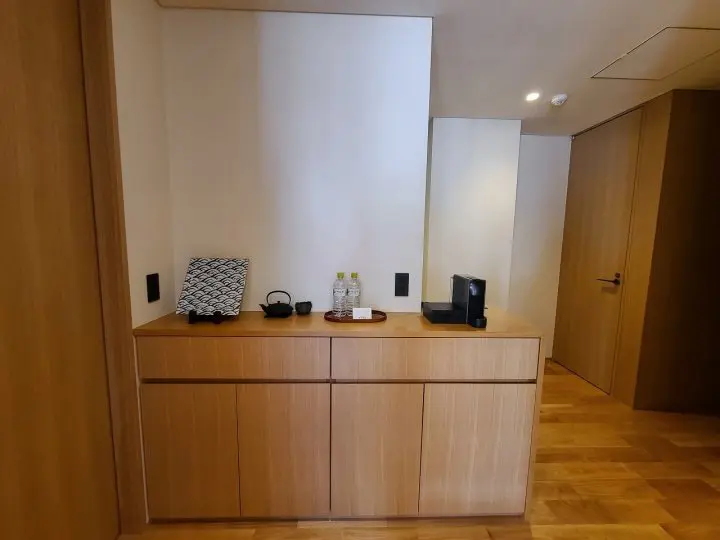
The refreshments area in Seigaiha
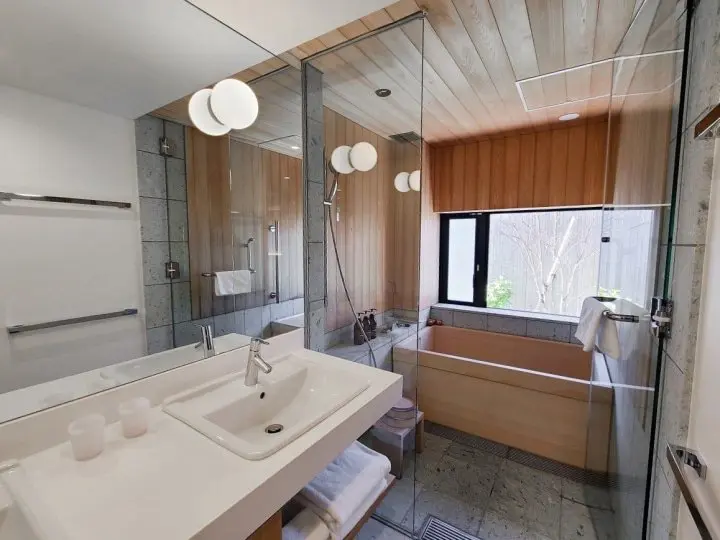
A soak in a hinoki bathtub is the best way to relax
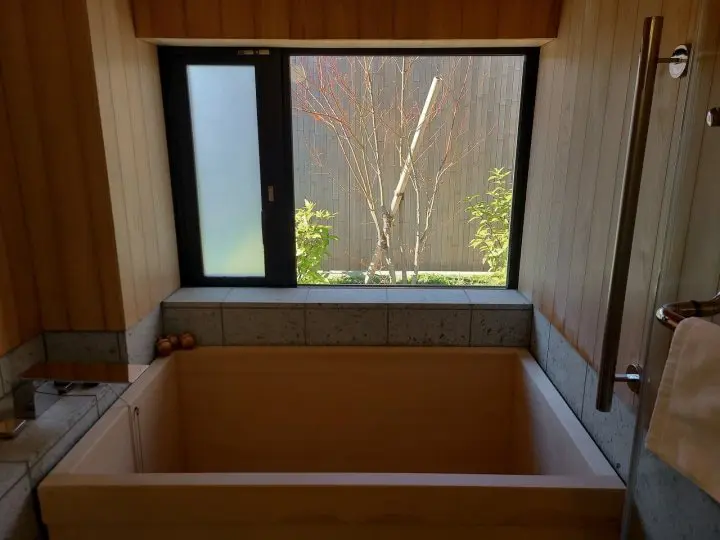
Sakura, along with Seigaiha on the 6th floor, even boast private hinoki bathtubs.
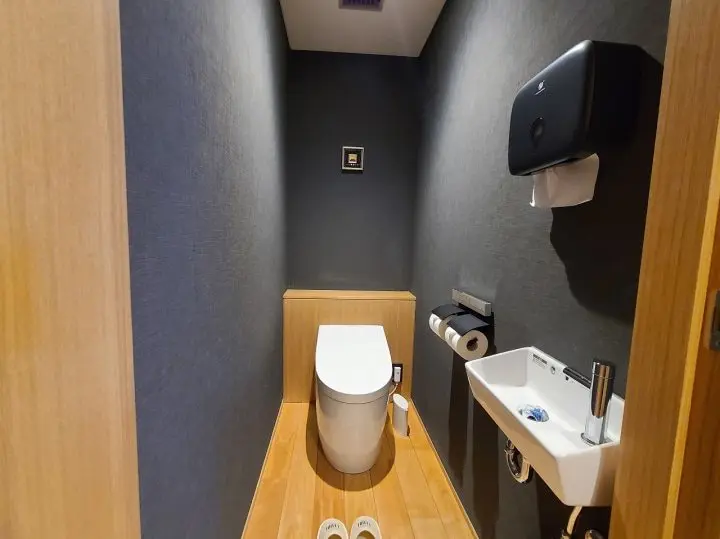
Even the toilet is fancy
The Shunkyomatsu room, a western-style room, has been designed to be accessible for wheelchair users and convenient for elderly guests as well.
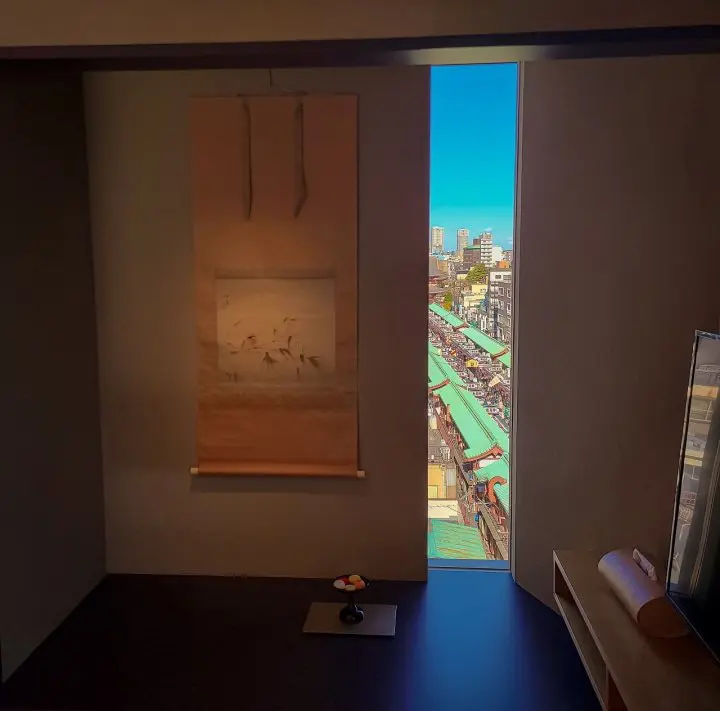
The various rooms have windows strategically placed windows in intriguing spaces and shapes to maximize the best view of the surrounding area, my favorite being a slim, rectangular window next to the hanging scroll right in the tokonoma (alcove).
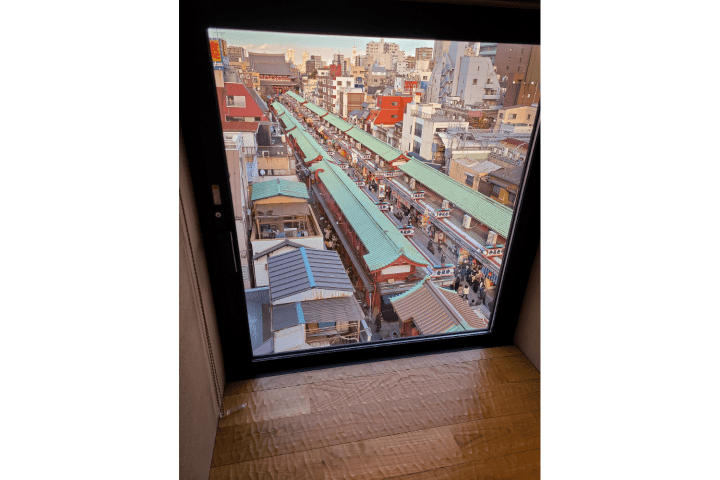
A low-sitting window overlooking Nakamisedori
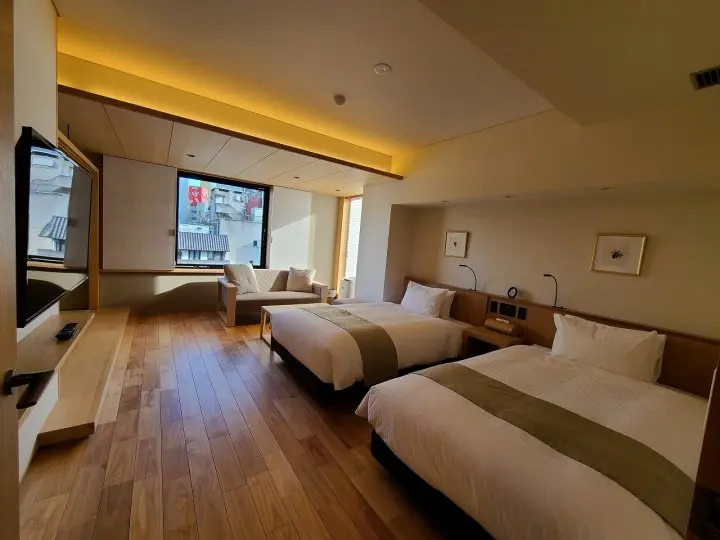
Four of the 13 rooms are western or western-fusion style rooms and use Sealy mattresses for the beds, while the rest use futons by famous Japanese brand Maruhachi Mawata—both are bound to give you a good night’s rest.
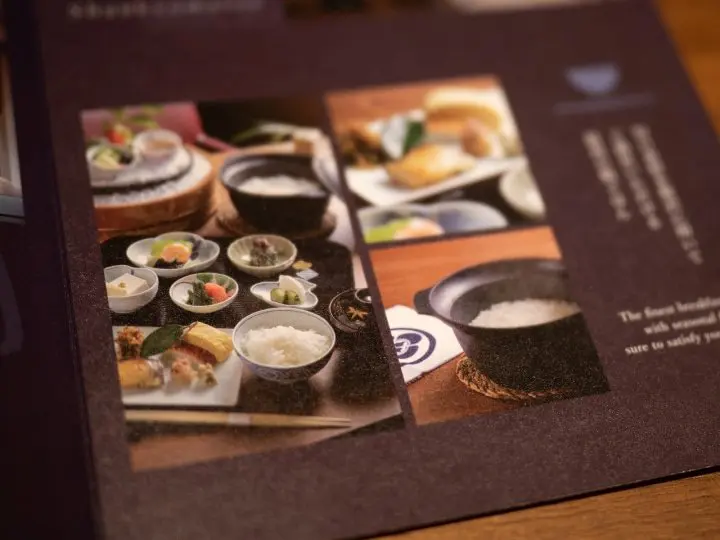
Kaminarimon Ryokan also offers a delicious Kyoto kaiseki-style breakfast prepared by a professional chef.
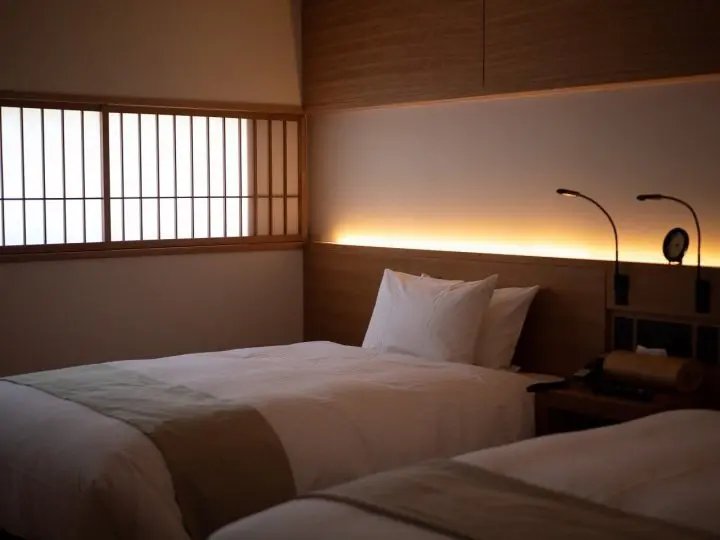
The ambiance of every room is sublime
“What are some difficulties that you’ve encountered?” I inquire.
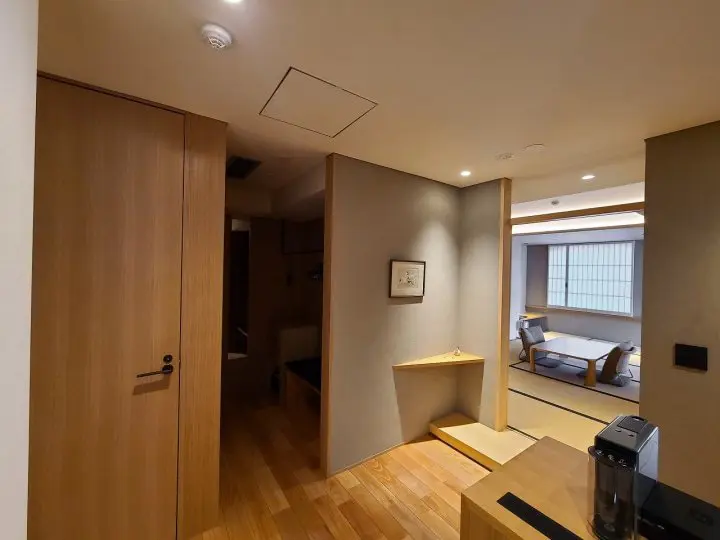
“The period after the 2011 earthquake and tsunami disaster, as well as this pandemic of course,” Yoshiko-san replies, a hint of sadness in her soft melodic voice. She goes on, “However, we did end up receiving a large number of Tokyo locals as guests when there were restrictions on travel, so that was a pleasant surprise.”
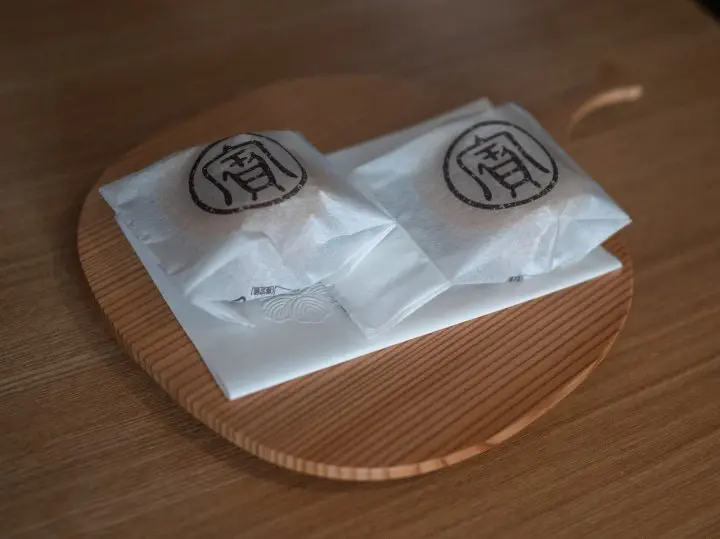
Sweets prepared for the guests
Although the ryokan was completely rebuilt in 2019 in order to welcome the growing number of tourists expected to visit for the 2020 Olympics, the onset of the pandemic prevented that from happening and Kaminarimon Ryokan is still relatively unknown among foreign travelers. With the cancellations of all inbound reservations, it’s certainly been a trying couple of years.
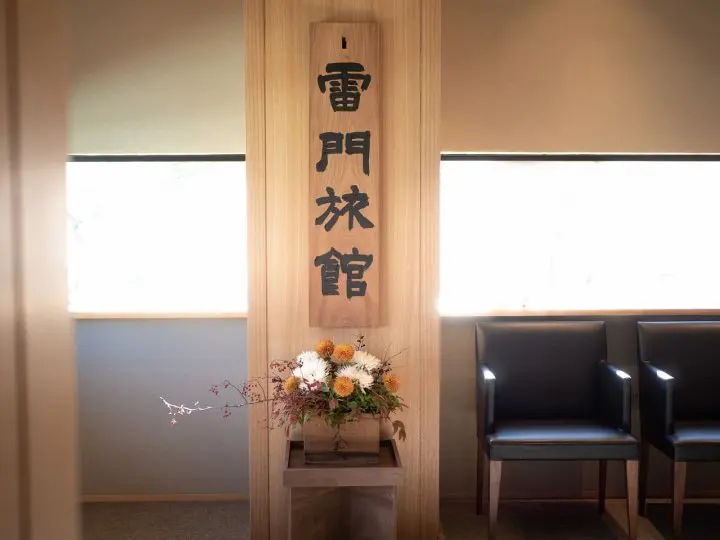
This year will be Kaminarimon Ryokan’s 75th anniversary, and Tobe-san expresses his hope that it will make it to 100+ years. Although foreign guests currently make up only a small fraction of the people that stay here, Tobe-san hopes that will change once the pandemic is under control so that more and more people from around the world can experience the best of what Japan has to offer.
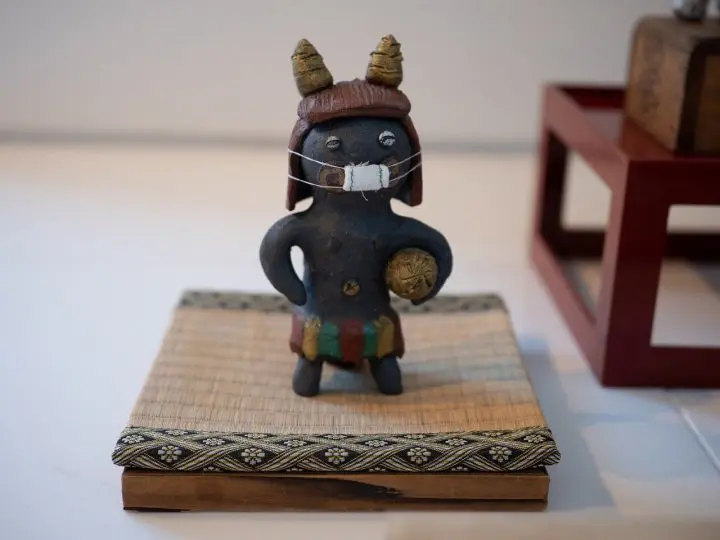
He wants the ryokan to be a place where guests can enjoy modern Japanese hospitality as well as feel the importance of passing on old traditions and antique artifacts inherited from previous generations. He also hopes that Kaminarimon Ryokan will become a specialty of the area.
I believe that with everything it has to offer, it’s well on its way.
I am an actress and model living in Japan. Tokyo Ryokan Stories is my essay series about less-known but amazing ryokan and hotels in Tokyo.



































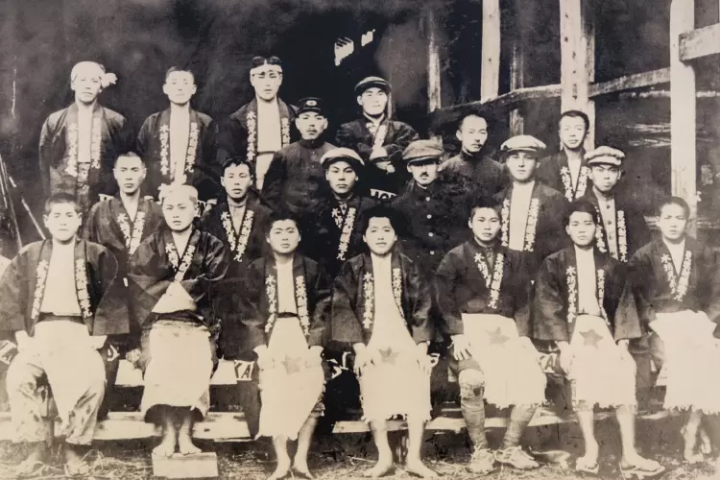
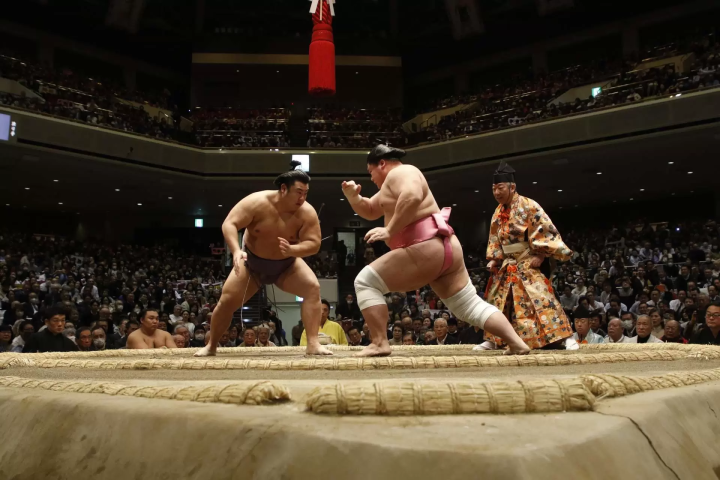
![[Okinawa] Enjoy the city of Naha and the sea! A luxurious stay with special benefits at two hotels in Okinawa](https://resources.matcha-jp.com/resize/720x2000/2026/02/12-258474.webp)

